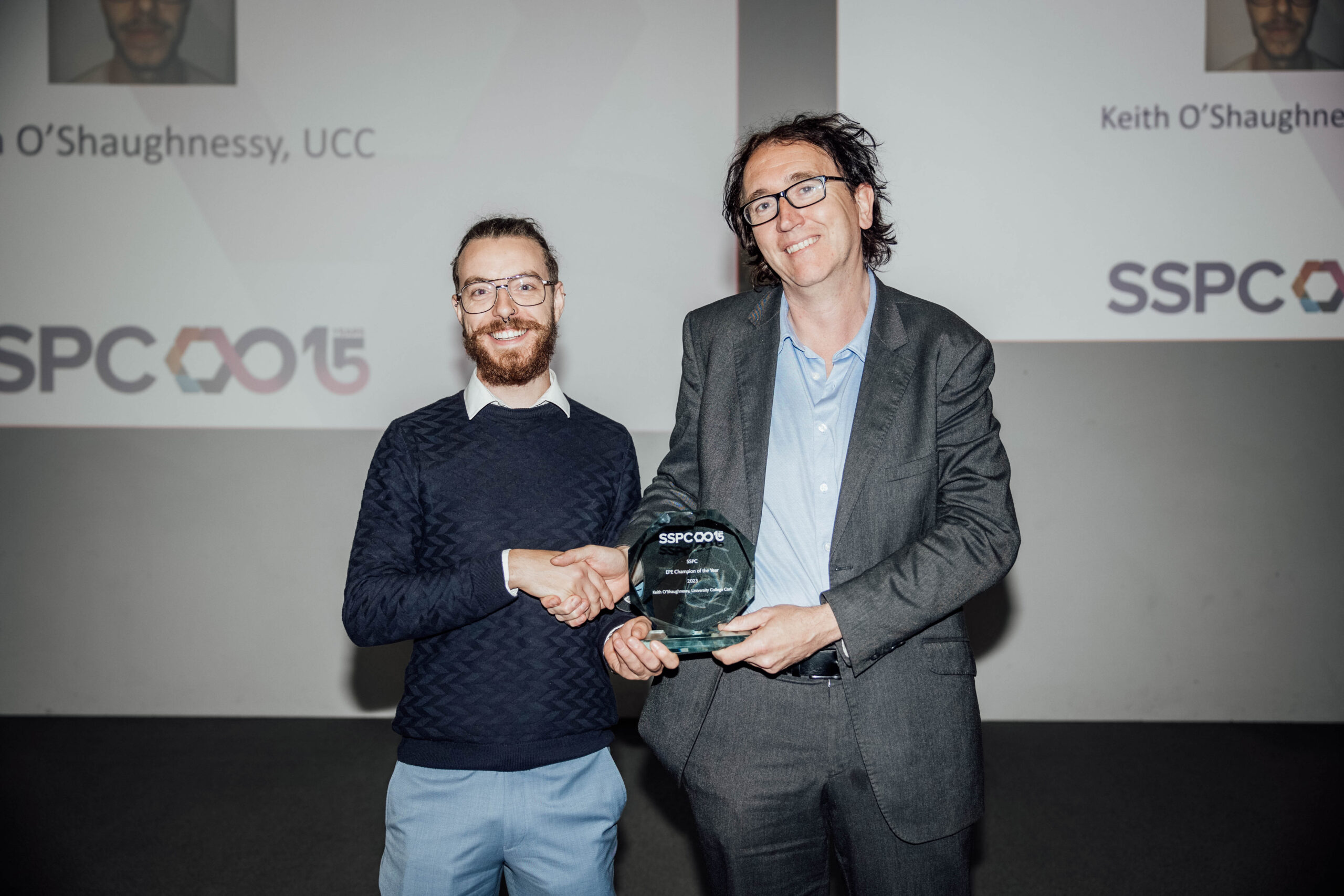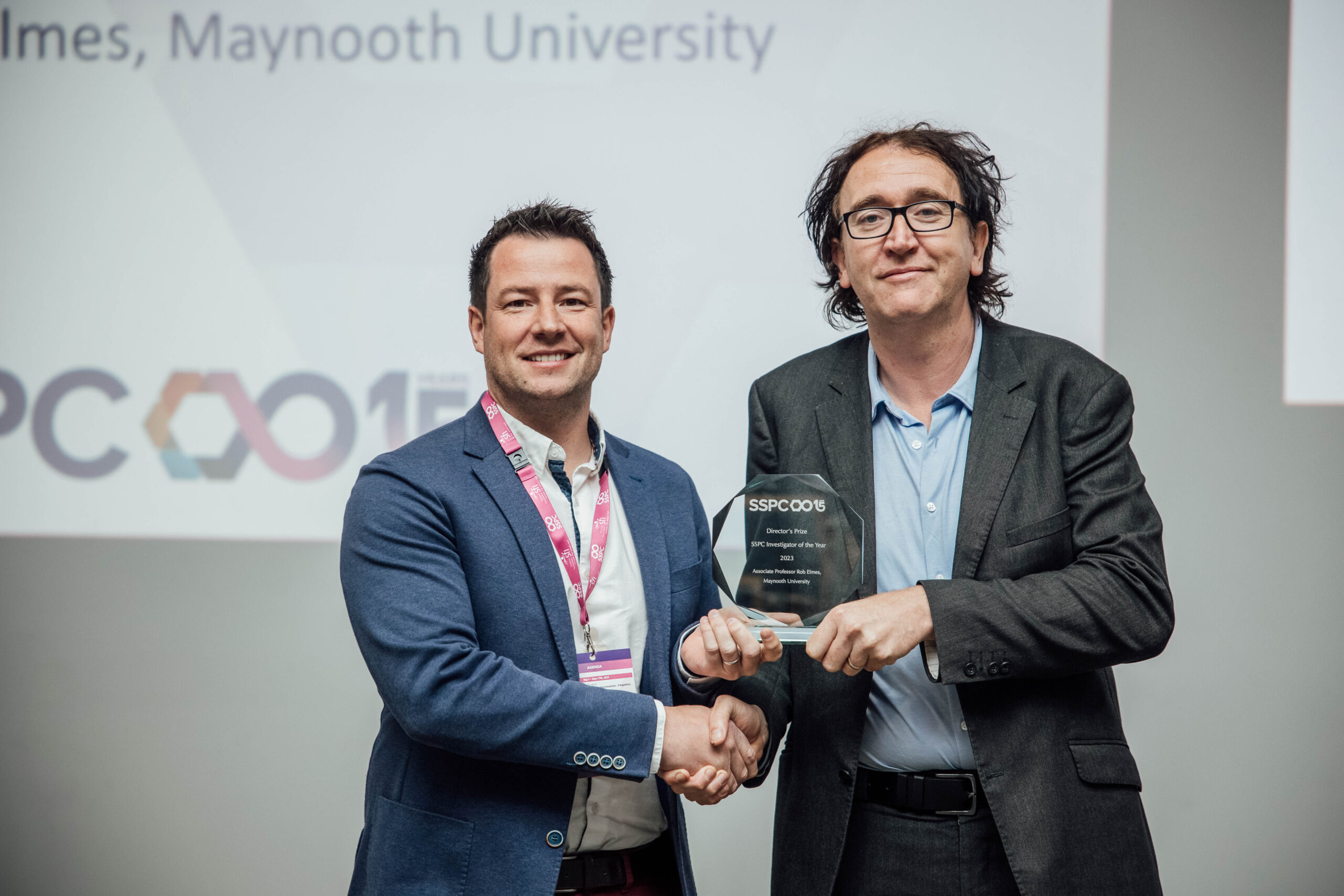Congratulations to Dr Shayon Bhattacharya, Assistant Professor in Physical Science, Department of Physics and SSPC member at the University of Limerick on receiving the President’s Research output award. The awards recognise staff who have made outstanding contributions in the excellence and impact of their research (beyond academia).
Dr Shayon Bhattacharya has an abundance of impacts from his research, for example, he has teamed up with a research team from Institute of Biology Valrose (iBV) in France to publish in the world-leading Nature Communications journal. Shayon and the computational molecular modelling team from SSPC wondered what would happen if wrong-handed or heterochiral amino acids are forced to accumulate inside cells? The outputs from the work shows that preservation of homochirality is a key component of protein function that is essential to maintain homeostasis across the cell, tissue and organ level. Furthermore, the team at SSPC, UL, identified that even partial loss of homochirality may lead to protein dysfunction, but a direct causal link between the two was never previously established.
These findings from predictive modelling is extremely crucial in the context of biochemistry and cell biology in that it corroborates that the molecular level charge balancing that enforces the chiral recognition is necessary to maintain homeostasis across the cell, tissue, and organ level including prevention of some devastating age-related diseases, such as neurodegenerative diseases. Further, to confirm the models, the research team from France used chiral-selective in vivo assays to detect protein-bound non-homochiral amino acid (focusing on aspartate) and assess their functional significance in Drosophila. The importance of this chiral discriminating capacity detected caspase-bound D-Asp in Drosophila or fruit flies where altering the chiral balance created impaired caspase activity and impaired cell death, increased tumour formation, and premature death.
The impact of the many of the above finding is that heterochirality syndrome reduces lifespan, increases susceptibility to tumors, inhibits apoptosis, and more, which was not established before. People suffering from even one enzyme with a wrong-handed amino acid “are expected to have massive physiological consequences on cell and tissue homoeostasis,” and the defect “might be implicated in many human diseases.” Due to cascading effects from a heterochiral building block, it is all downhill when random chance lands a right hook. In this publication, for the first time, a causal link is established between even partial loss of homochirality and protein dysfunction with detailed underlying molecular mechanism, which could further aid in developing therapies for age-related disorders, such as Alzheimer’s, Parkinson’s and certain cancers associated with the ‘heterochirality syndrome’.
Biochemists realise that homochirality is functionally beneficial and would tend to be preserved by natural selection. It’s been over 170 years since the famous scientist Louis Pasteur recognised chirality as a fundamental feature of biology. Thus attaining perfect homochirality and maintaining it with molecular machines would universally be recognised as the most obvious choice to account for this “overarching design principle in all living organisms.”
The President’s Research Excellence and Impact Awards have been running since 2020. In 2023, the Research Output Awards category was established at Faculty level to celebrate and acknowledge the excellent research that has been carried out in UL. This award supports our commitments as part of DORA and the Coalition for the Reform of Research Assessment (CoARA).



























